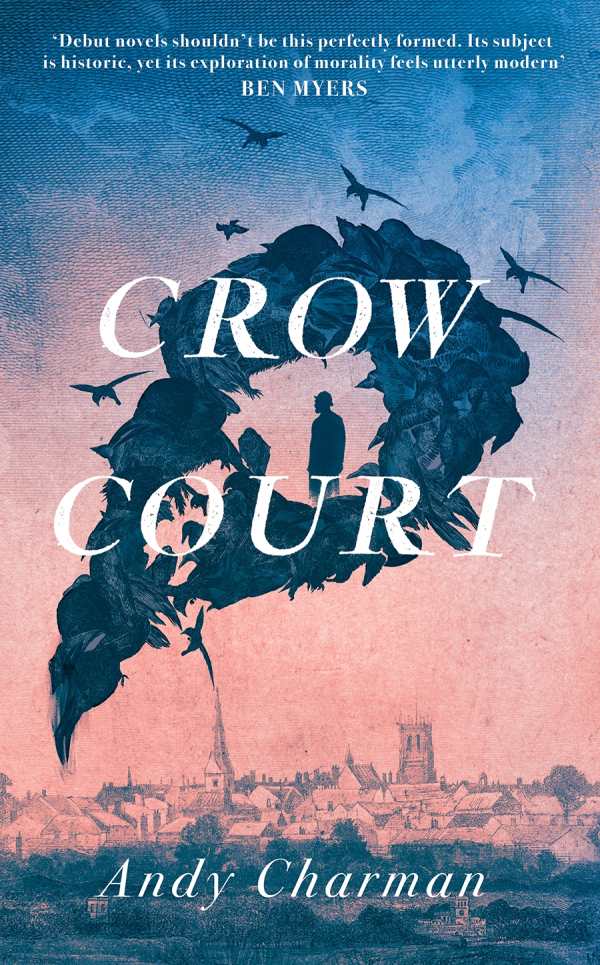Crow Court
In Andy Charman’s dynamic mystery novel Crow Court, the death of a choir master in late nineteenth-century England is enigmatic.
Charles is a wine merchant who rose from poverty; he and four friends set out to confront his half brother, Matthew, a choir master who uses his position to abuse children, earning the name “Buggermaster.” When they arrive at Matthew’s lodgings, though, they find that he already has a knife in his gut—or so they claim. Over the next twenty years, each of the friends is suspected as the murderer.
The intricate plot is made more so by the number of people who witness Matthew’s death, his bizarre burial, or both. Each has a perspective on the murder, as well as stories about the social environment surrounding it, adding to the suspense.
Most of the novel is set in Dorset, and it is steeped in the social upheavals of its time. The Industrial Revolution, the advent of the theory of evolution, and the tuberculosis epidemic all play a part in the unraveling of the mystery; the tragedy of human exploitation is a dominant theme.
Though its opening is fragmented, the story fast becomes lyrical; it is filled with descriptive passages. However, the book’s conversations are marred by its reproduction of the accents of working-class people using phonetic spellings; those in the middle and upper classes, meanwhile, speak without indications of an accent. This has the ironic effect of reinforcing class distinctions alongside the book’s exploration of class inequities.
But friendship transcends these inequities toward the novel’s conclusion. As the identity of the murderer becomes clear, so do the era’s paradigm shifts, answering the question of whether the murder can be justified.
Rich in period details, human interactions, and moral quandaries, Crow Court is a propulsive and philosophical mystery novel.
Reviewed by
Michele Sharpe
Disclosure: This article is not an endorsement, but a review. The publisher of this book provided free copies of the book to have their book reviewed by a professional reviewer. No fee was paid by the publisher for this review. Foreword Reviews only recommends books that we love. Foreword Magazine, Inc. is disclosing this in accordance with the Federal Trade Commission’s 16 CFR, Part 255.

